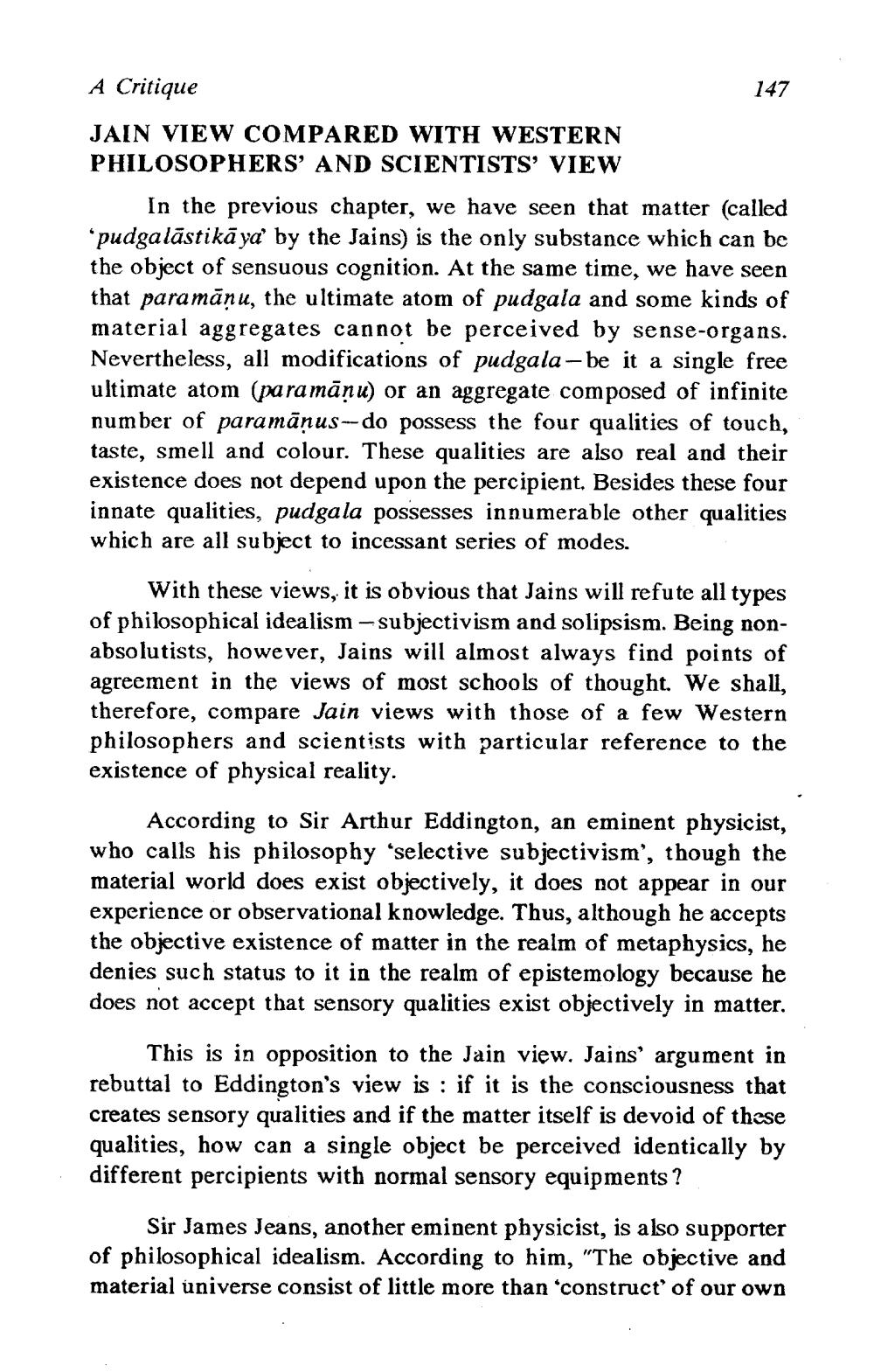________________
A Critique
JAIN VIEW COMPARED WITH WESTERN PHILOSOPHERS' AND SCIENTISTS' VIEW
147
In the previous chapter, we have seen that matter (called 'pudgalāstikā ya' by the Jains) is the only substance which can be the object of sensuous cognition. At the same time, we have seen that paramāņu, the ultimate atom of pudgala and some kinds of material aggregates cannot be perceived by sense-organs. Nevertheless, all modifications of pudgala-be it a single free ultimate atom (paramāņu) or an aggregate composed of infinite number of paramāņus-do possess the four qualities of touch, taste, smell and colour. These qualities are also real and their existence does not depend upon the percipient. Besides these four innate qualities, pudgala possesses innumerable other qualities which are all subject to incessant series of modes.
With these views, it is obvious that Jains will refute all types of philosophical idealism-subjectivism and solipsism. Being nonabsolutists, however, Jains will almost always find points of agreement in the views of most schools of thought. We shall, therefore, compare Jain views with those of a few Western philosophers and scientists with particular reference to the existence of physical reality.
According to Sir Arthur Eddington, an eminent physicist, who calls his philosophy 'selective subjectivism', though the material world does exist objectively, it does not appear in our experience or observational knowledge. Thus, although he accepts the objective existence of matter in the realm of metaphysics, he denies such status to it in the realm of epistemology because he does not accept that sensory qualities exist objectively in matter.
This is in opposition to the Jain view. Jains' argument in rebuttal to Eddington's view is: if it is the consciousness that creates sensory qualities and if the matter itself is devoid of these qualities, how can a single object be perceived identically by different percipients with normal sensory equipments?
Sir James Jeans, another eminent physicist, is also supporter of philosophical idealism. According to him, "The objective and material universe consist of little more than 'construct' of our own




